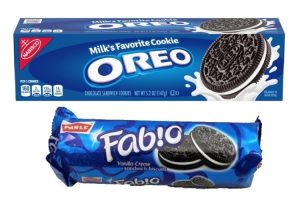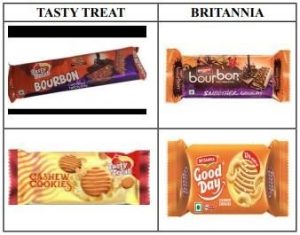- AI
- Arbitration
- Asia
- Automobile
- Bangladesh
- Banking
- Biodiversity
- Biological Inventions
- bLAWgathon
- Brand Valuation
- Business
- Celebrity Rights
- Company Act
- Company Law
- Competition Law
- Constitutional Law
- Consumer Law
- Consumer Protection Authority
- Copyright
- Copyright Infringement
- Copyright Litigation
- Corporate Law
- Counterfeiting
- Covid
- Design
- Digital Media
- Digital Right Management
- Dispute
- Educational Conferences/ Seminar
- Environment Law Practice
- ESIC Act
- EX-Parte
- Farmer Right
- Fashion Law
- FDI
- FERs
- Foreign Law
- Gaming Industry
- GDPR
- Geographical Indication (GI)
- GIg Economy
- Hi Tech Patent Commercialisation
- Hi Tech Patent Litigation
- IBC
- India
- Indonesia
- Intellectual Property
- Intellectual Property Protection
- IP Commercialization
- IP Licensing
- IP Litigation
- IP Practice in India
- IPAB
- IPAB Decisions
- IVF technique
- Judiciary
- Khadi Industries
- labour Law
- Legal Case
- Legal Issues
- Lex Causae
- Licensing
- Live-in relationships
- Lok Sabha Bill
- Marriage Act
- Maternity Benefit Act
- Media & Entertainment Law
- Mediation Act
- Member of Parliament
- Mergers & Acquisition
- Myanmar
- NCLT
- NEPAL
- News & Updates
- Non-Disclosure Agreement
- Online Gaming
- Patent Act
- Patent Commercialisation
- Patent Fess
- Patent Filing
- patent infringement
- Patent Licensing
- Patent Litigation
- Patent Marketing
- Patent Opposition
- Patent Rule Amendment
- Patents
- pharma
- Pharma- biotech- Patent Commercialisation
- Pharma/Biotech Patent Litigations
- Pollution
- Posh Act
- Protection of SMEs
- RERA
- Section 3(D)
- Signapore
- Social Media
- Sports Law
- Stamp Duty
- Stock Exchange
- Surrogacy in India
- TAX
- Technology
- Telecom Law
- Telecommunications
- Thailand
- Trademark
- Trademark Infringement
- Trademark Litigation
- Traditional Knowledge
- UAE
- Uncategorized
- USPTO
- Vietnam
- WIPO
A sector requires constant innovation and upgradation to survive and sustain in the market and the food sector is no exception to this pre-requisite. With the emergence of new techniques and recipes, Intellectual Property Rights protection has emerged in the food industry. The protection ranges from contents of the advertisements to the recipes and design of the products. The rights applicable to the food industry are Patents, Trademarks, Copyrights and Trade secrets.
There have been many cases of infringement in the food industry related to recipe/formula of the product, shape of the product, packaging, tradename and copyrights. This article pertains solely to biscuit-making industry. A case related to trademark infringement has recently been brought before the hon’ble Delhi High Court.
Oreo-maker (Mondelez International Inc.) vs Parle [CS (COMM) 64/2021]
Recently in the beginning of 2021, the United States-based Intercontinental Great Brands LLC, a unit of Mondelez International Inc., filed a suit against Parle before the hon’ble Delhi High Court. The plaintiff contended that the design of Indian firm’s Fabio biscuits is “deceptively similar” to that of Oreo, which is a well-known and widespread brand. Intercontinental Great Brands LLC has its presence in India for considerable time. It had launched Oreo about a decade ago and brought further variations and flavours to the product, keeping the shape of the product same. On the other hand, Fabio, like Oreo, is a cream biscuit, launched in 2020, comprising white cream sandwiched between two black cookies. The branding of the product is also similar to that of Oreo, with its blue, black and white packaging.

Britannia Industries Ltd. vs Future Consumer Limited & Ors. [CS (COMM) 47/2020]

- For ‘Tasty Treat butter’ and ‘Tasty Treat Cashew’: Change of the words ‘GOOD TIMES’ to ‘GREAT TIMES.’
- For ‘Tasty Treat Bourbon’: Change Orange/Brown to a very different shade of Pink.
- For ‘Tasty Treat Rusk’: Change of colour Yellow to a different shade of Yellow (non-mustard).
The defendant agreed to comply with the above-mentioned changes by May, 2020 but on defendant’s request, the time was extended for a month i.e., June, 2020 (see here). Hence, the matter was disposed of by the hon’ble High court subject to filing of affidavit by the defendant.
Concluding Remarks
The Trademark Act, 1999 provides that the infringement of a registered trademark takes place when a person, not a registered proprietor of the mark, uses the mark in the course of his/her trade this is identical or deceptively similar. The question of “deceptively similar” in the food industry (specifically biscuit-making industry) is interpreted by Indian courts through various precedents. For instance, the case of Britannia Ltd vs Itc Ltd and Ors. [CS(COMM) 553/2020], the hon’ble Delhi High Court refused to recognize similarity between “digestive biscuits” of both the brands on certain grounds. The hon’ble court stated that while pronouncing, the court cannot gloss over the fact that there is an evident distinction between plain digestive biscuits and “Veda” digestive biscuits because the latter is derived from Ayurveda. Moreover, a prudent person has the ability to distinguish between the two and hence, there are less chances of confusion between the two (see here).
There is a benchmark to be fulfilled in the trademark infringement cases. The courts cannot blindly favour one of the parties. The biscuit makers should respect other’s brand, packaging and design to avoid any confusion in the minds of consumers. Increase in awareness of the companies can save a ton of judiciary’s time and resources.
Author: Tanya Saraswat – a student of Narsee Monjee Institute of Management Studies (NMIMS), in case of any queries please contact/write back to us via email chhavi@khuranaandkhurana.com or at Khurana & Khurana, Advocates and IP Attorney.



